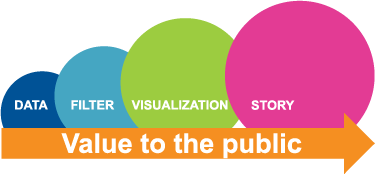Show don't tell!
Storytelling is critically important in talking with people about things like vaccines. That’s for a number of reasons:
- Most of us are not scientists so we don’t connect with the data. In fact, sometimes the data can be confusing or even scary
- We are emotional beings – our decision-making is based on the heart and the head. We need stories to help our emotional decision-making process
- It helps people relate. It’s personal. It’s real. It’s not a bunch of numbers
- Frankly, it’s just more interesting
Storytelling best practices
- Tailor it to your audience: what will resonate most with them
- Identify the purpose of the story: what is the message you want to get across
- Describe what happened instead of explaining the main lesson
- Keep it short and focused
- Make it personal: use your own experiences
- Use emotion and empathy
- Don’t be the hero of the story (”and then I saved the day…”)
- Practice!
How you can help
- Learn more about advocating and engaging on social media
- Take the Vaccine Quest to learn more about vaccines
- Learn evidence-based ways to handle hesitancy to become the Trusted Vaccine Messenger to the people around you
- Get involved as a Vax Ambassador, Social Media Ninja, or other Volunteer with Voices for Vaccines
- Share your story on our blog

© Voices for Vaccines. Excerpts and links may be used by websites and blogs, provided that full and clear credit is given to Voices for Vaccines, with appropriate and specific direction and links to the original content. Parents, providers, advocates, and others may download and duplicate toolkits in print, without alteration, for non-commercial use and with full and proper attribution only.
